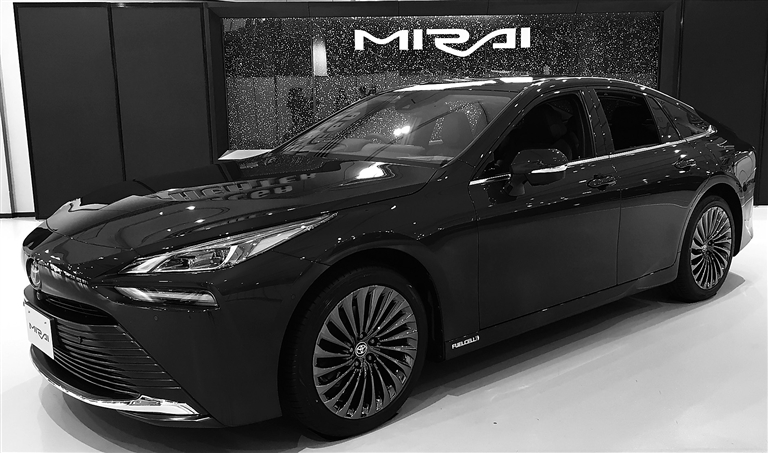
TOYOTA Motor Corp. said yesterday it is testing hydrogen combustion engines in race cars as it works toward using the technology in commercial products. Such engines burn hydrogen as fuel instead of gasoline, much like rockets. The Japanese automaker said testing the technology in race cars will allow it to collect data and try to fix problems on-site. Toyota announced earlier that it was developing a hydrogen combustion engine, which Ford Motor Co. and other automakers have also developed. Vehicles powered by such engines are different from fuel cell vehicles that use hydrogen to create electricity, and from electric or hybrid vehicles. “We want to propose multiple options to meet regional needs,” Naoyuki Sakamoto, chief engineer of the hydrogen-powered engine Corolla model, said in an online news conference. Sakamoto declined to say when the hydrogen combustion engine may become a commercial product, acknowledging further development are needed to address its so far limited driving range. Infrastructure for fueling such vehicles is another obstacle. One advantage of hydrogen engines is that minimal adjustments are needed from regular internal combustion engines, except for the fuel piping and injection systems. The use of hydrogen as fuel comes with some risk concerns, but hydrogen fueling stations are operating across Japan, with no major accidents so far. Sakamoto said hydrogen is as safe as any other fuel on roads today, noting lithium-ion batteries used in electric vehicles have caused fires, and hydrogen tanks are made of carbon fiber. The latest hydrogen technology is being tested on a Yaris with a 1.6 liter engine for racing, according to Toyota. Two hydrogen tanks fit in the back seat area of the racing car, although that is likely to change for commercial models. (SD-Agencies) | 
